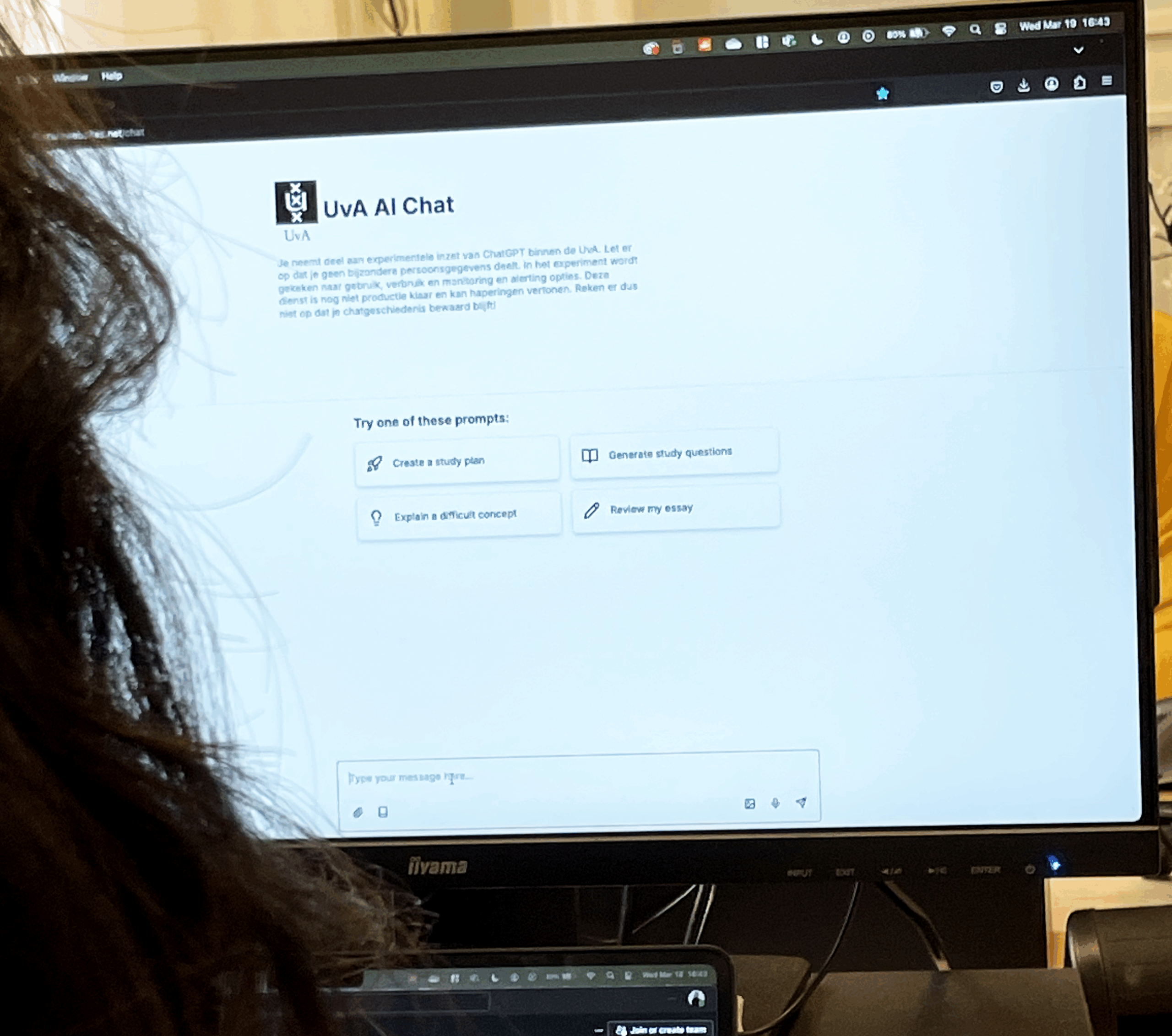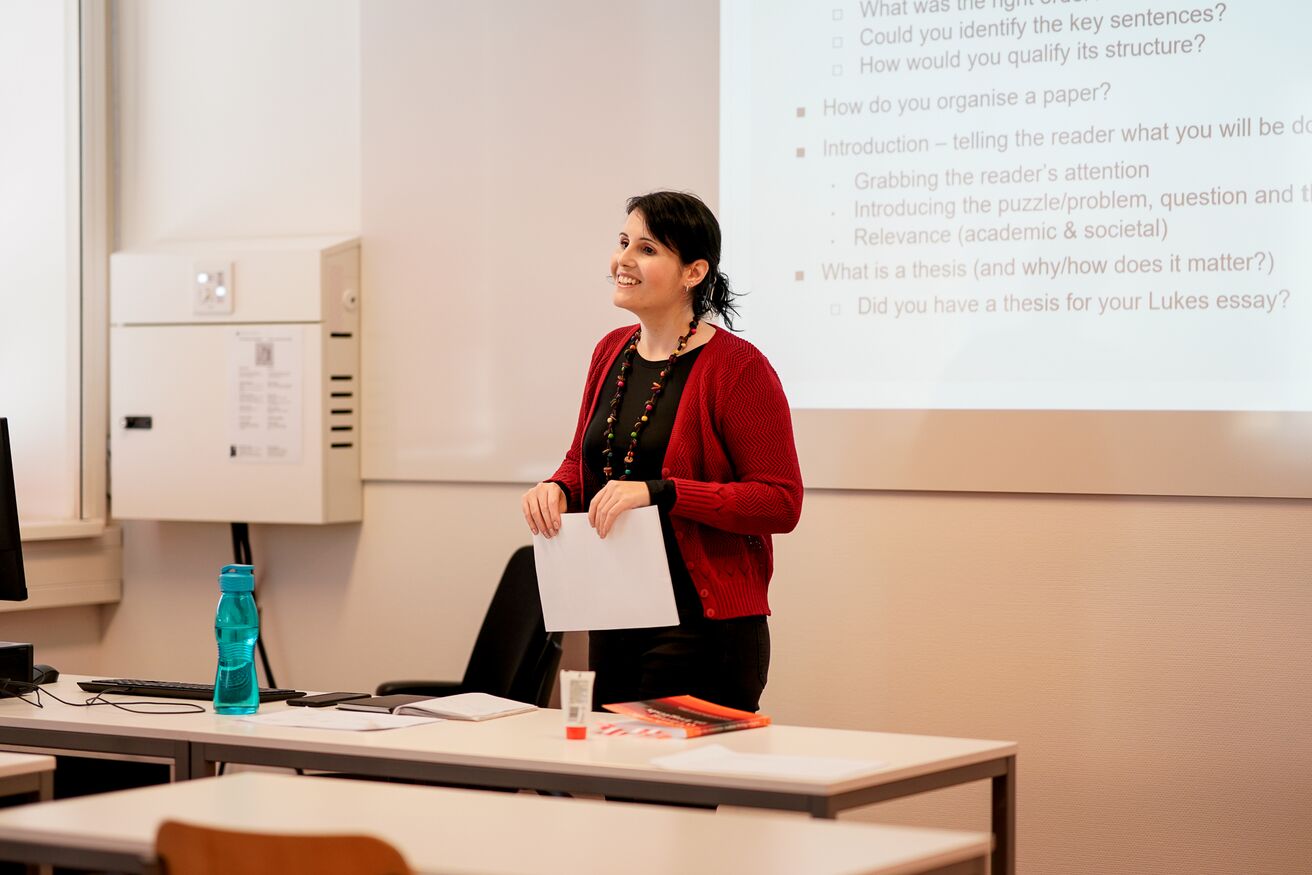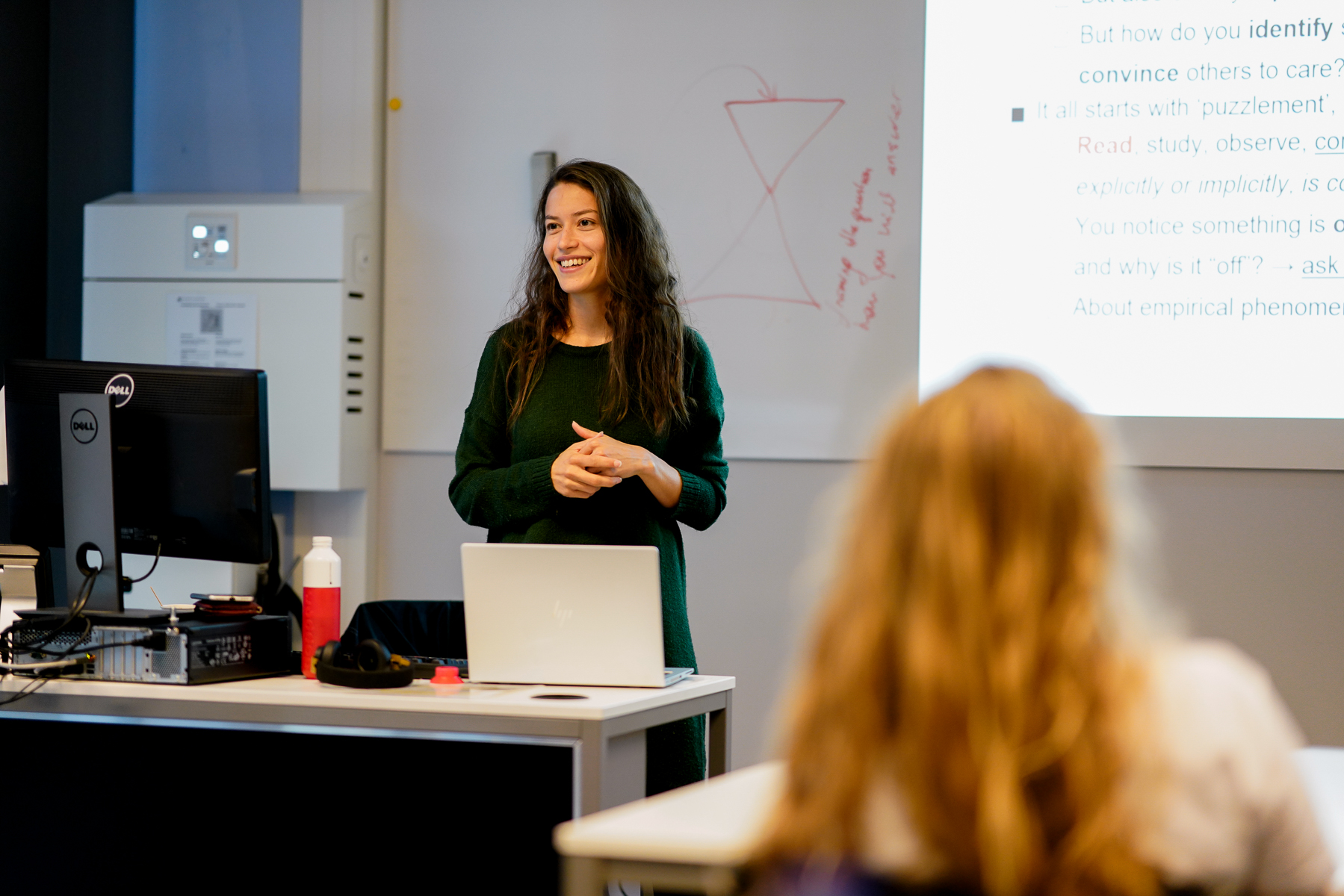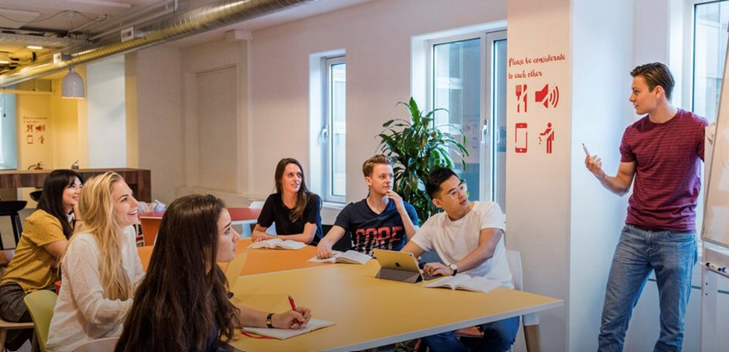Our e-learnings

This e-learning module is designed for teachers who want to learn more about the principles of blended learning and eventually want to apply this in practice.
You’ll learn in this module what blended education is, what the advantages (and disadvantages) are and how you can design a blended education program.
The e-learning consist of three parts:
- What is blended learning
- Blended education design
- Workshop (one half-day) on blended education design

This e-learning course offers a practical introduction to UvA AI Chat, the University of Amsterdam’s AI chat environment.
This e-learning course consists of six components:
- Introduction
- Writing and saving effective prompts
- Adjusting personal preferences
- Creating personas for personalized interaction
- Collaborating in groups
- Working on projects

The e-learning basic didactics teaches you the basic principles for designing and conducting your education. The e-learning is intended for starting teachers and/or for teachers with some experience.
The e-learning consists of three parts:
- The student at the centre
- Designing education
- Implementing education.
Each module consists of theory, practical illustrations, a quiz, reflective questions and questions that help you apply the acquired knowledge into practice. The modules take approximately 30-40 minutes to finish.

You’ll follow a self-paced online training course where you’ll learn, among other things, how to:
- prepare your course in Canvas;
- communicate with your students;
- set up and grade assignments;
- calculate and enter final grades.

This e-learning is aimed at lecturers and teaching assistants who want to learn more about the responsible use of GenAI in higher education and the impact it can have on your teaching.
The e-learning consist of five elements:
- What is GenAI and how does it work?
- How to formulate good prompts and personas?
- What are the limitations and ethical issues of GenAI?
- What is the impact of GenAI on teaching and assessment?
- How can you help your students to use GenAI responsibly?

This e-learning has been developed for students who want to learn more about the responsible use of GenAI in higher education.
After completing this e-learning:
- You will know what UvA’s policy is for the use of AI.
- You will understand the basics of how Generative AI and Large Language Models work.
- You will be familiar with the most common applications and limitations of AI.
- You will be aware of the main ethical and societal issues around AI use.

In this e-learning, we will look at the fundamental principles of Active Learning and examine how it can be incorporated into existing courses easily and efficiently without the need for a drastic redesign of the current course of the programme.
The e-learning consist of three parts:
- Active learning principles
- Activity design
- Addressing the challenges

This e-learning empowers educators and students to understand and implement accessibility principles, aiming to remove these persistent barriers and promote inclusivity in education.
The e-learning consist of three parts:
- Introduction to digital accessibility
- How to implement digital accessibility
- Button up: extra information & feedback

This module focuses on instructor feedback for students. You will learn more about principles of effective feedback and how to formulate feedback. This will help you support your students’ learning process as well as possible.
The e-learning consist of three parts:
- Feedback in your course design
- Effective feedback
- Practical tips
The e-learning takes about 30 minutes.

This e-learning module will help you get started with integrating peer review in your teaching.
The module covers the didactic principles and process of peer review, guidelines for effective peer review, the instructor’s role, and how to assess peer review.

This e-learning has been developed for lecturers who want to engage with assessment in a practical way within their course. You can complete the full e-learning programme, for example, in preparation for the BKO sessions on assessment, or choose to follow individual modules, depending on your specific learning needs. The modules include theory, practical examples, quizzes, and reflection questions.
The e-learning consist of four parts:
- From idea to framework: (re)designing assessments
- Creating questions and assignments: constructing assessments
- Marking and assigning grades
- Analysing, improving, and evaluating the quality of results

In this e-learning module you will learn to interpret the statistical data that programmes like TestVision or Ans Exam generate for your exam. Our aim is to help you analyze your own exam, so that you can determine whether you are actually measuring what you set out to measure, and even increase the reliability of your exam after the fact.
The e-learning consist of four parts:
- Introduction
- Understanding an assessment analysis
- Increasing assessment quality
- Conclusion

This e-learning has been specially developed for those who (will) teach in courses that are part of the Amsterdam Law Practice (ALP). ALP is the experiential learning educational program of the Law Faculty of the UvA.
The e-learning consist of five parts:
- Didactic principles of experiential education
- Different forms of experiential education
- Clinical legal education
- Reflection and legal ethics
- Assessment and evaluation in experiential education






